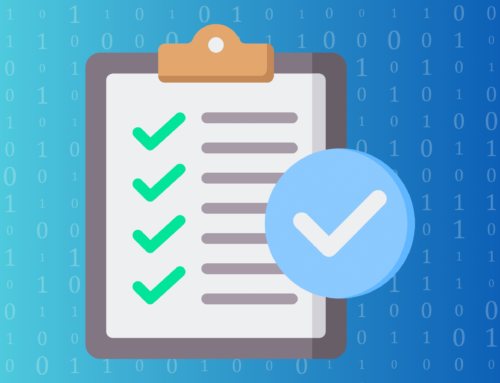
HIPAA compliance is critical for healthcare providers, and violations can result in hefty fines and reputation damage. A HIPAA remediation plan is a comprehensive strategy that healthcare professionals can implement to ensure that they are HIPAA compliant. This plan outlines the necessary steps to address gaps in your compliance.
Steps to Create a HIPAA Remediation Plan
Creating a HIPAA remediation plan is critical for healthcare professionals to ensure compliance with federal regulations and avoid costly penalties.
Here are some steps to follow when creating a HIPAA remediation plan:
- Conduct a Risk Analysis
- Develop Policies & Procedures
- Train Your Staff
- Monitor Your Systems
- Respond to Incidents
Creating a HIPAA remediation plan can be a daunting task, but it’s critical for healthcare providers to protect patient data and avoid costly penalties. By following these steps, you can ensure that your organization is in compliance with federal regulations and well-prepared to respond to incidents.
Conducting a Risk Assessment
A risk assessment is one of the most crucial steps in creating a HIPAA remediation strategy. This entails locating and assessing possible threats to the privacy, security, and accessibility of electronic protected health information (ePHI).
Regular HIPAA risk assessments should be performed, especially after making changes to the technology or operational procedures of your organization. This will assist in ensuring that your business complies with HIPAA rules and that your ePHI is protected.
You should identify potential risks and vulnerabilities, evaluate the likelihood and impact of each risk, and create a strategy to reduce or eliminate those risks during a risk assessment. This can entail putting in place new security measures, revising rules and processes, or giving staff members more training.
It’s crucial to remember that a risk assessment is a continuous process rather than a one-time occurrence. The risks and vulnerabilities faced by your organization will alter as new technologies and threats materialize. Maintaining compliance with HIPAA requirements and staying up to speed with the latest security measures will be made easier with regular risk assessments.
Implementing Safeguards
Implementing safeguards can be a complex process, but it is essential for healthcare organizations to protect the privacy and security of patient data.
Administrative Safeguards
- Policies and procedures that healthcare providers put in place to manage the conduct of their employees and workforce members
- Prevent unauthorized access to ePHI and only allow access to authorized personnel
- Access controls
- Requiring user ID’s and passwords
- Conducting regular security awareness training for employees
- Designating a privacy officer to oversee HIPAA compliance
Physical Safeguards
- Securing areas where PHI is stored (file cabinets, securing rooms, using surveillance cameras, etc.)
- Policies and procedures that cover the use and disposal of PHI
- Conduct risk analysis to identify potential vulnerabilities
Technical Safeguards
- Encrypted ePHI both in transit and at rest
- Strong authentication process for users accessing ePHI (multi-factor authentication)
- IT systems are regularly updated to fix any known vulnerabilities
- Have a robust disaster recovery and business continuity plan in case of any system failures or data breaches
By putting these appropriate safeguards in place, healthcare providers can help prevent data breaches, reduce liability and legal risks, and demonstrate their commitment to HIPAA compliance.
Developing Policies & Procedures
To make sure healthcare organizations stay in line with compliance regulations, developing HIPAA policies and procedures is an essential process. This includes:
- Creating a comprehensive security management plan that outlines how PHI is collected, stored, and shared.
- Ensuring patient rights are protected and that any PHI is only shared with authorized individuals and organizations.
- Document policies and procedures and make it available to all staff members who handle PHI so HIPAA compliance is maintained and all established guidelines are followed.
Healthcare providers can make sure they are taking the required measures to abide by HIPAA standards and maintain the security of patient information by taking the time to develop a thorough plan.
Training & Educating Employees
HIPAA rules and regulations are complex, and it is urgent that your employees understand the importance of maintaining patient privacy and security. Employees must be aware of potential HIPAA violations and the specific protocols that need to be followed to comply with the regulations.
This includes:
- Understanding how to handle PHI
- What constitutes a breach
- What actions to take in the event of a breach
- Designate a HIPPA compliance officer
Investing in regular HIPAA training sessions for your employees can go a long way in preventing costly mistakes and violations. It is essential to provide ongoing education, as HIPAA regulations are continually evolving. By training and educating your employees, you can create a culture of compliance within your organization, which is vital to maintaining patient trust and protecting their PHI.
Responding to Security Incidents and Breaches
As a part of a healthcare organization, you must always be prepared for security incidents and data breaches.
These incidents can happen at any time, and they can be caused by a variety of factors, including:
- Employee error
- Hacking
- Natural disasters
Your HIPAA remediation plan should include a detail response plan for security incidents and breaches. This plan should outline the steps you will take in the event of an incident, including:
- How you will investigate the incident
- Who you will notify
- How you will mitigate the damage
You should also have dedicated team in place to handle security incidents and breaches. This team should include trained representatives from all areas of your organizations, including:
- IT
- Legal
- Communications
In addition to responding to security incidents and breaches, you should also have a plan in place beforehand to prevent these incidents from happening in the first place. This plan should include:
- Regular security assessments
- Employee training
- Ongoing monitoring of your systems and networks
By having a comprehensive HIPAA remediation plan in place, you can ensure that your organization is prepared for security incidents and breaches, and that you are implementing everything you need to protect your patients’ sensitive information.
At Compliancy Group we supply you with the best way possible to simplify compliance for your organization. We make sure you have a remediation plan set from the get go! With our easy to use software, and our Customer Success Team guiding you through the entire process, it has never been easier for your organization to become HIPAA compliant!







